
Indonesia’s blue food economy can drive sustainable development and improve nutrition outcomes. Small-scale fisheries play a crucial role in food security, yet their impact is limited due to inefficient value chains, restricted market access, and low awareness of fish’s nutritional benefits. Women in this sector face systemic barriers, while environmental degradation, climate change, and food loss further threaten sustainability and public health.
MSC conducted an assessment across four provinces to analyze the contributions of small-scale fisheries to nutrition, food security, and public health. Through consultations with fisherfolk, policymakers, and processors, MSC identified key barriers and developed recommendations for creating more nutrition sensitive supply chains of blue food. To increase the uptake of nutritious blue food varieties, MSC recommended the integration of blue food into school meal programs, maternal health initiatives, and social assistance programs, such as Bantuan Pangan Non-Tunai (BPNT). We also emphasized the potential of fortified fish products to enhance nutritional value.
MSC explored strategies to reduce food loss and waste to strengthen the blue food value chain while promoting gender inclusion. A policy roadmap was developed to align blue food with Indonesia’s sustainable development and nutrition strategies. The roadmap focused on sustainable fisheries management, nutrition security, and equitable participation of small-scale fishers. We identified scalable models from other countries that Indonesia can adapt to promote sustainable fisheries, improve nutrition outcomes, and ensure inclusive growth.
The findings help strengthen Indonesia’s fisheries sector while they improve access to affordable, high-quality nutrition for vulnerable communities.
The Indonesian Ministry of National Development Planning, the Economic Research Institute for ASEAN and East Asia, Stanford University – Center for Ocean Solutions, and Surveyor Indonesia supported this initiative.
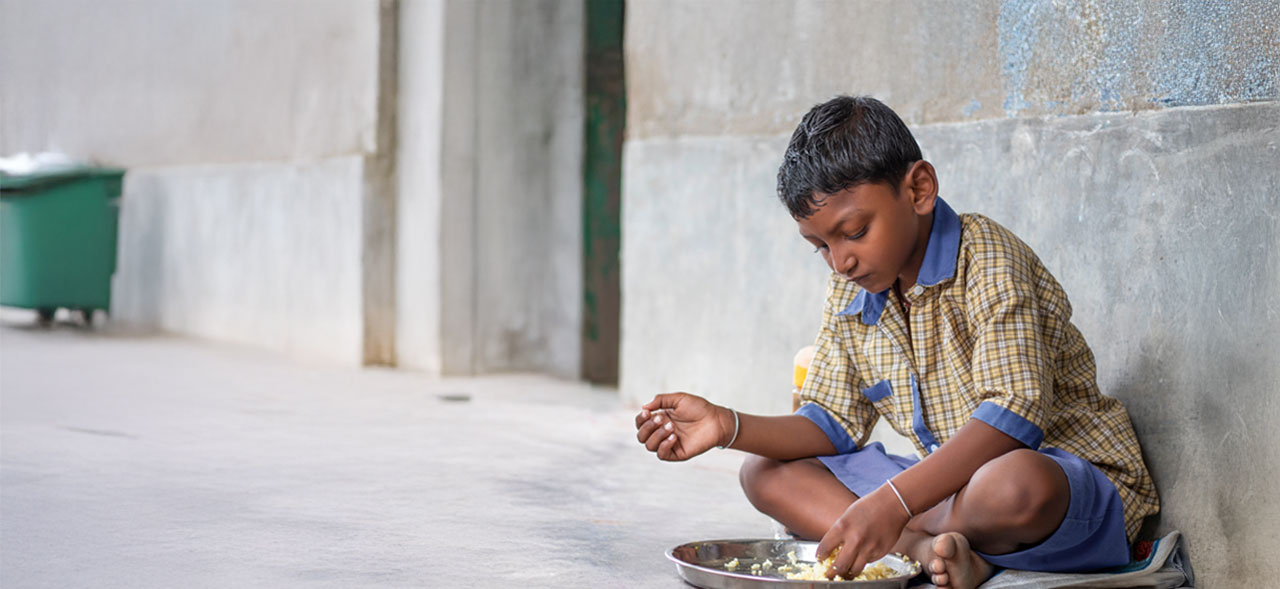
60% of India’s population suffers from anemia and micronutrient deficiencies, which undermines national health and productivity. To address this emergency, the Government of India sought to blend approximately 40 million tons of regular rice with fortified rice kernels (FRK) per year to enhance the nutritional value of rice distributed through public welfare programs. Fortified rice, enriched with essential micronutrients, such as iron and vitamin B12, helps combat anemia.
MSC supported the Department of Food and Public Distribution from the pilot phase in 2020 to full-scale implementation by March 2024. MSC provided strategic guidance, developed an implementation roadmap, and engaged with all states and union territories to ensure a smooth rollout. Through technical support, MSC enabled real-time monitoring to track progress effectively.
MSC conducted landscape studies in Andhra Pradesh, Bihar, Punjab, and Uttar Pradesh to assess and strengthen the supply chain of fortified rice. These insights led to the development of a digital solution to improve transparency and efficiency in fortified rice supply chain management and quality control, which was piloted with the Government of Andhra Pradesh before wider implementation. MSC also organized learning workshops in Varanasi and Vijayawada to foster collaboration. These workshops brought together state governments and stakeholders to exchange experiences and best practices.
The program significantly improved nutritional outcomes for 800 million beneficiaries. It directly benefited more than 500 million women and children by providing fortified rice through schools (PM POSHAN), Anganwadi centers, and fair price shops. It helped 16 states and union territories establish a sustainable fortification roadmap. The initiative also supported an estimated INR 20 billion capital investment for fortified rice kernel manufacturing, blending units, and laboratory infrastructure. It also created more than 50,000 jobs within the fortification ecosystem, which boosted economic sustainability.
The Gates Foundation funded the project.
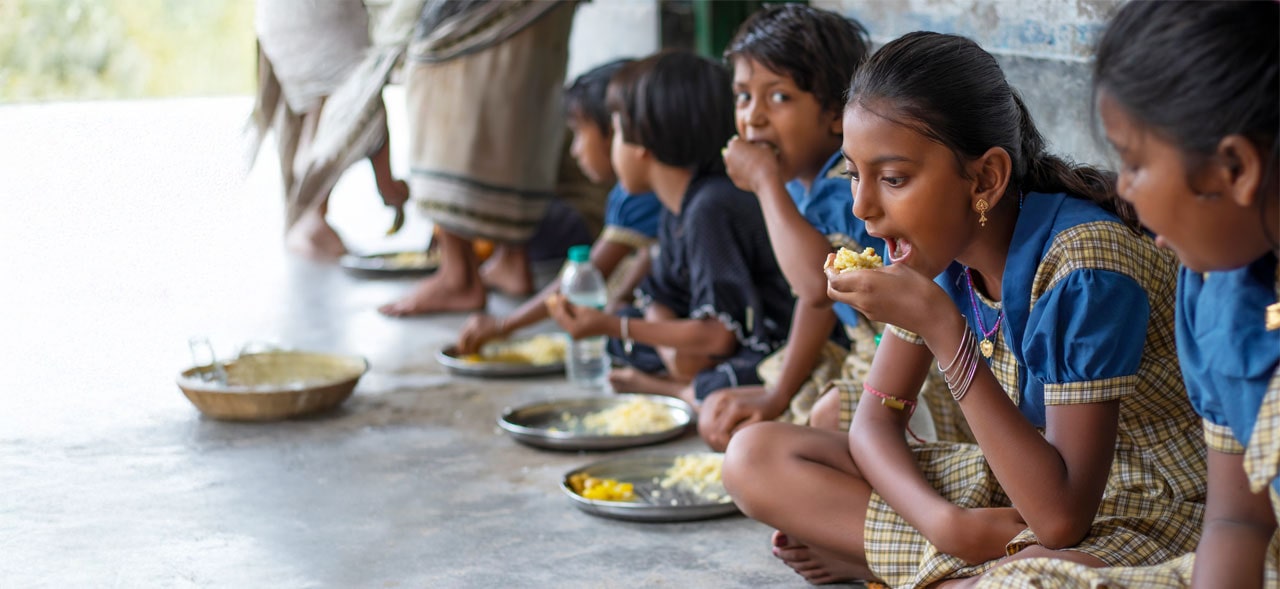
The integration of fortified foods into India’s food security programs is a complex challenge that requires coordination across government departments, optimized supply chains, and alignment with private sector stakeholders. However, despite the importance of food fortification, several barriers exist in both the public and private sectors. Therefore, advocacy and policy support are crucial in building a strong, fortified food ecosystem.
MSC worked closely with the Department of Food and Public Distribution to secure key stakeholders’ commitments to include fortified staples in India’s social safety net programs. MSC established a collaborative platform to improve coordination between central and state governments. We organized regional learning workshops that facilitated knowledge exchange among food fortification stakeholders. We also developed knowledge briefs that provided insights into the current status of food fortification in India and its future opportunities. Additionally, MSC supported the formulation of quality standards and standard operating procedures (SOPs) for fortified rice processing and distribution.
MSC’s efforts helped shape government policies and quality standards for fortified rice processing and distribution. The project accelerated the rollout of the rice fortification program, which benefited 800 million people through the distribution of fortified rice. More than 200 stakeholders actively participated in the learning workshops, which led to stronger policy commitments. The intervention also helped resolve challenges within the food fortification ecosystem.
The Gates Foundation funded this project to support the Government of India’s goal to improve nutrition through large-scale food fortification.
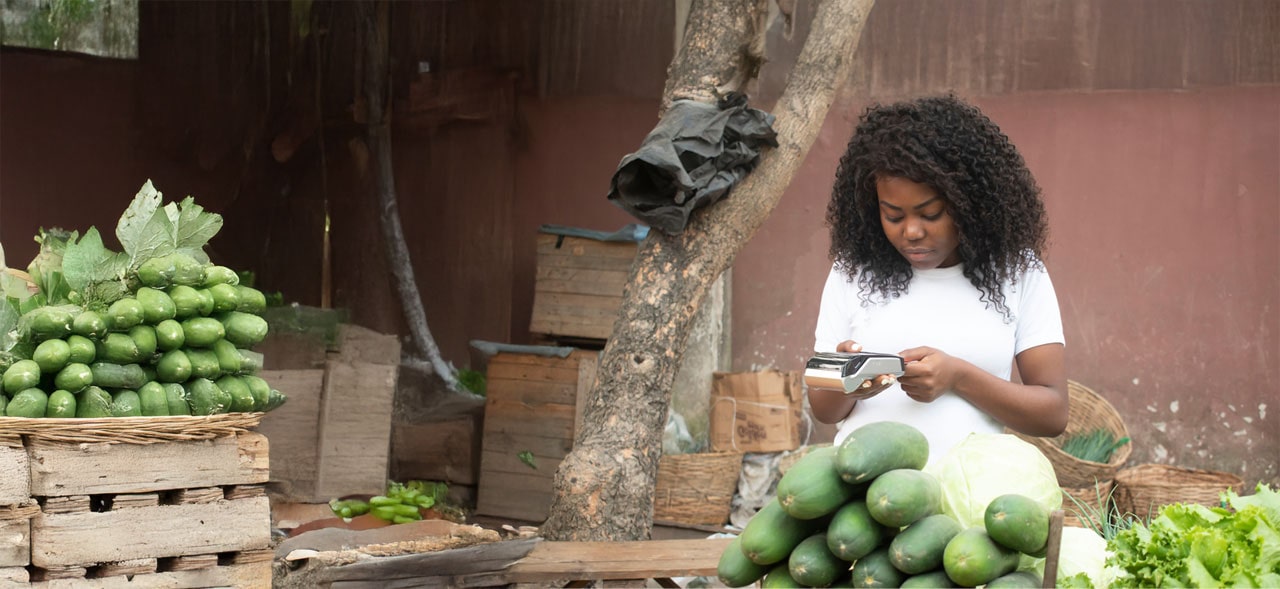
Vaccine-derived polio outbreaks were rising across Africa, yet vaccination campaigns faced significant challenges. In the first quarter of 2020, nearly half of the polio campaigns in the WHO’s Africa region were postponed or disrupted due to payment delays for campaign workers. Many countries continued to rely on public finance management systems (PFMS), which often led to inefficiencies. Digital payments emerged as a potential solution to streamline payments for health workers and build a broader tech-enabled ecosystem for vaccination campaigns.
MSC assessed four African countries—Burkina Faso, Ethiopia, Côte d’Ivoire, and South Sudan—to evaluate their readiness for biometric-enabled digital payments for polio campaign workers. MSC used its digital readiness assessment (DRA) framework to examine infrastructure readiness (digital identity, payment systems, agent networks, and digital ecosystems) and program readiness (digital beneficiary databases and program design). The study also analyzed financial inclusion indicators, health worker density, and existing payment methods to recommend a holistic government-to-person (G2P) payment approach.
MSC provided key recommendations to optimize public financial management (PFM) processes through digital architecture. Immediate recommendations sought to strengthen existing systems, institute KYC processes, and facilitate cash-in and cash-out (CICO) networks to ensure smoother payments. Long-term recommendations emphasized the development of digital foundational IDs for health workers, which could link bank accounts to digital identities, and the integration of an interoperable payment system with the national payment switch.
The study provided a strategic roadmap for each country to transition toward efficient digital payment mechanisms, ensure timely compensation for health workers, and strengthen the vaccination ecosystem. The initiative enabled secure and transparent digital transactions to enhance polio campaign effectiveness and lay the groundwork for future health interventions in Africa.
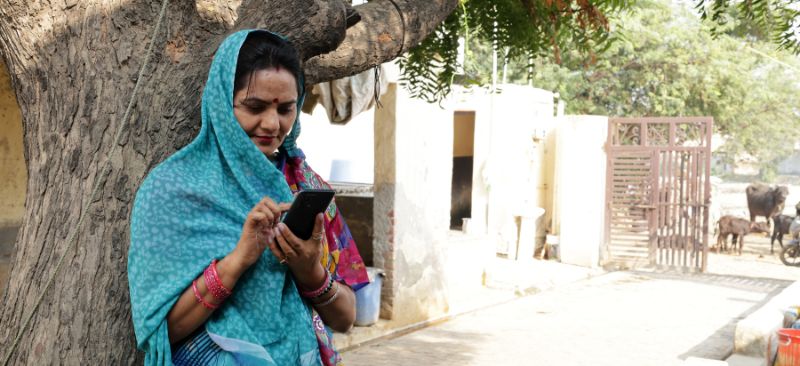
We conducted a global landscaping study to identify key barriers and investment opportunities for closing the gender digital divide and advancing women’s digital inclusion.
MSC conducted this study to understand the barriers that sustain the gender digital divide. Through extensive research and stakeholder consultations, MSC mapped over 100 public and private sector interventions and synthesized insights from 160+ publications. The study included deep dives in India, Pakistan, Bangladesh, Kenya, Nigeria, and Senegal to uncover six key barriers and 33 sub-barriers to women’s digital access.
MSC provided actionable recommendations to help the Gates Foundation prioritize investments, shape its digital connectivity strategy, and identify high-impact opportunities to sustainably bridge the digital divide for women and girls worldwide.
The Gates Foundation commissioned the project.
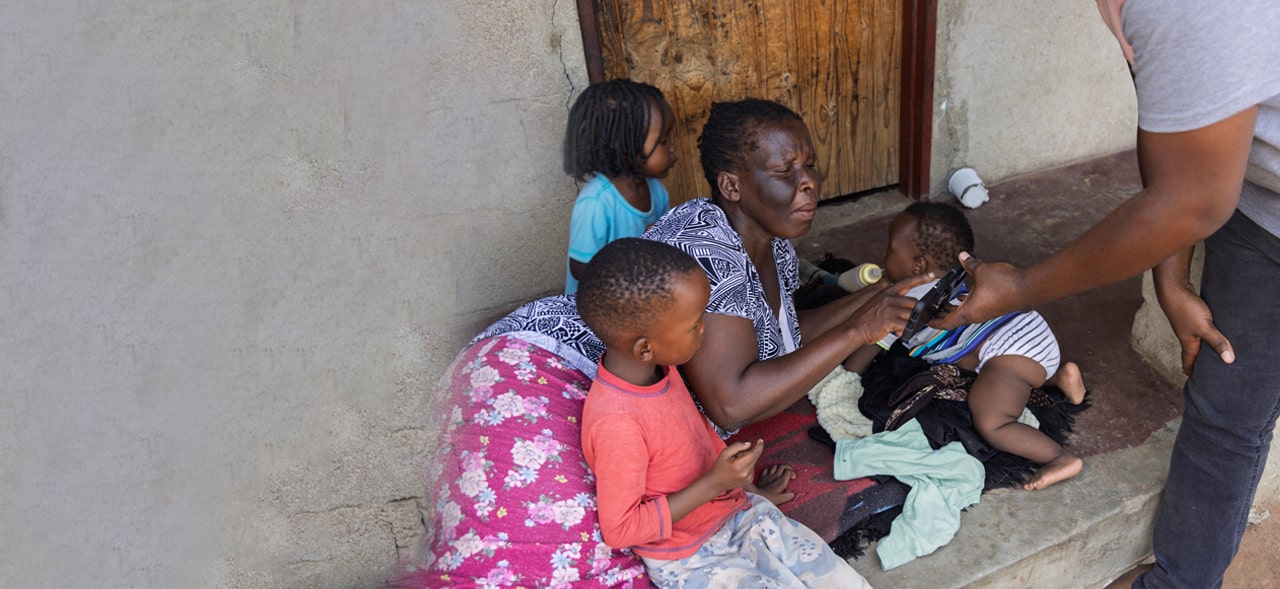
We use innovative research methods like financial diaries, to design digital financial solutions that are rooted in women’s lived realities. Through deep behavioral insights and real-time tracking of financial lives, we help partners close the gender gap in access, usage, and agency across diverse contexts.
In Bangladesh, MSC partnered with UNCDF to analyze how women use mobile financial services and uncover the barriers to meaningful usage. Despite increasing account ownership, many women remain passive users due to low digital confidence, restrictive social norms, and limited perceived value. Using MSC’s Gender Centrality Framework and behavioral analysis, the research revealed useful strategies to improve financial literacy, shift norms, and build trust. The findings led to targeted recommendations for financial service providers and policymakers, paving the way for more inclusive digital financial products that meet women where they are.
In Kenya, MSC collaborated with the Gates Foundation to support women-led micro and small enterprises in open-air, cross-border markets. Through an intensive financial diaries study, MSC identified key barriers to digital financial service adoption, such as a lack of tailored solutions, trust gaps, and poor user experience. Working closely with financial institutions and women entrepreneurs, MSC co-developed and tested digital product prototypes, directly informed by women’s real-life cash flows and constraints. The project has not only shaped the Gates Foundation’s strategy in Kenya but also provided a scalable model for advancing women’s digital inclusion in similar markets across East Africa. Together, these programs demonstrate how financial diaries and user-centered design can bridge the gap between product intent and women’s actual needs, driving sustainable, inclusive financial ecosystems.





